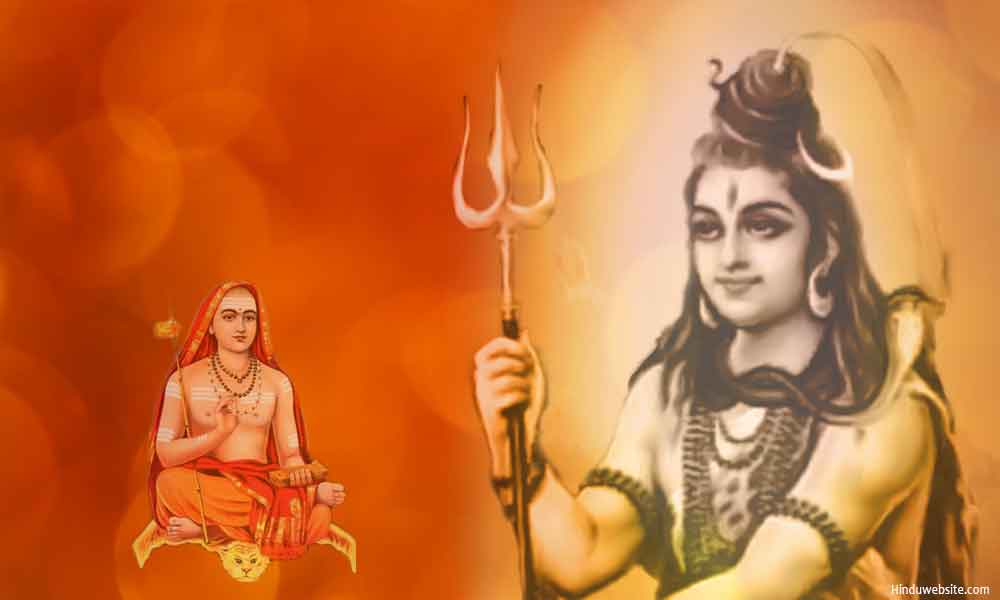
Sadhana Panchakam, Instruction 38

Index | Intro | 1 | 2 | 3 | 4 | 5 | 6 | 7 | 8 | 9 | 10 | 11 | 12 | 13 | 14 | 15 | 16 | 17 | 18 | 19 | 20 | 21 | 22 | 23 | 24 | 25 | 26 | 27 | 28 | 29 | 30 | 31 | 32 | 33 | 34 | 35 | 36 | 37 | 38 | 39 | 40 | Read with Kindle Unlimited |
5.6. With mental resolve free yourself from future karma
Those who are on the path of liberation and engaged in self-purification have to resolve primarily three types of karmas namely past karma, present karma and future karma. In the previous instruction, we have learned how to resolve past karma. In this one, we are advised to stop the formation of karma from current actions so that there will be no further accumulation and formation of it. The karma which will arise in future from our present or past actions is known as agami karma. Agami means forthcoming or that which has not yet arrived.
Householders who engage in desire-ridden actions for worldly fulfillment cannot prevent the formation of future karma since such actions produce positive and negative consequences. Those who abide in good actions earn meritorious karma which leads to a better life in the next birth and peace and happiness, while those who do not do so incur its opposite and fall down. Since all such actions, irrespective of whether they are good or evil, produce consequences, they bind people to this world and subject them to varying degrees of delusion and ignorance according to their deeds. Even on the path of renunciation, one cannot entirely be free from agami karma. It is true even in case of liberated souls because the body in itself is impure and engages in both pure and impure actions due to the gunas and the nature of the tattvas.
While ordinary people cannot escape from agami karma, in case of liberated souls (jivanmuktas) it mostly remains ineffective. Because the jivanmuktas are not attached to their minds and bodies and do not identify themselves with their names and forms while they perform actions with sacrificial attitude, their actions cease to produce any karmic consequences. They live like the lotus plants in the impure waters of samsara, untouched by the consequences of their own pure and impure actions.
Adepts and enlightened masters subdue their egos and dissolve them in the knowledge of the self. Since doership and ownership are absent in them, they are unaffected. When actions are performed, they remain indifferent thinking that the organs and tattvas in their bodies are performing them. When thoughts arise, they know that their minds are at work and they are mere witnesses to them. They discern things as they are, and through self-realization attain oneness with Brahman. Practicing sameness and equanimity and abiding in the transcendental self, they also rise above the duality of right and wrong and morality and immorality. Having become passives witnesses and without judgment, they remain pure and free from karma.
A liberated person exemplifies the ideal situation of doing nothing even when he is engaged in actions. Since he suppresses desires in all forms, restraining his mind and senses and arresting all desire-ridden thoughts and expectations, his actions do not bear fruit. Through detachment, sameness and equanimity, and with skillfulness in actions (karma kausalam) he performs actions for the sake of self only or for the welfare of the world. The Bhagavadgita describes the situation as inaction in action. When an action is performed without desires, it is deemed inaction since it does not produce any karma.
Suggestions for Further Reading
- Ashtavakra Samhita Translation and Commentary
- The Wisdom of the Bhagavadgita
- The Wisdom of the Upanishads
- 22 Minor Upanishads
- Shiva Sutras, The Aphorisms of Shiva
- The Yoga Sutras - A Brief Summary by Chapter
- Atmabodha - Knowledge of Self
- Yoga Vashisht, The Abridged Version
- Gitanjali - By Tagore
- Confucian Analects
- The Garuda Purana
- How To Remain Steadfast on the Spiritual Path
- Famous Quotations on Spirituality
- Basic Spirituality for Worldly People
- How To Find Peace Within Yourself
- The Self or Soul As Pure Consciousness
- Self-knowledge, Difficulties in Knowing Yourself
- Moksha or Liberation in Hinduism
- Types of Knowledge or Jnana in Hinduism
- Essays On Dharma
- Esoteric Mystic Hinduism
- Introduction to Hinduism
- Hindu Way of Life
- Essays On Karma
- Hindu Rites and Rituals
- The Origin of The Sanskrit Language
- Symbolism in Hinduism
- Essays on The Upanishads
- Concepts of Hinduism
- Essays on Atman
- Hindu Festivals
- Spiritual Practice
- Right Living
- Yoga of Sorrow
- Happiness
- Mental Health
- Concepts of Buddhism
- General Essays